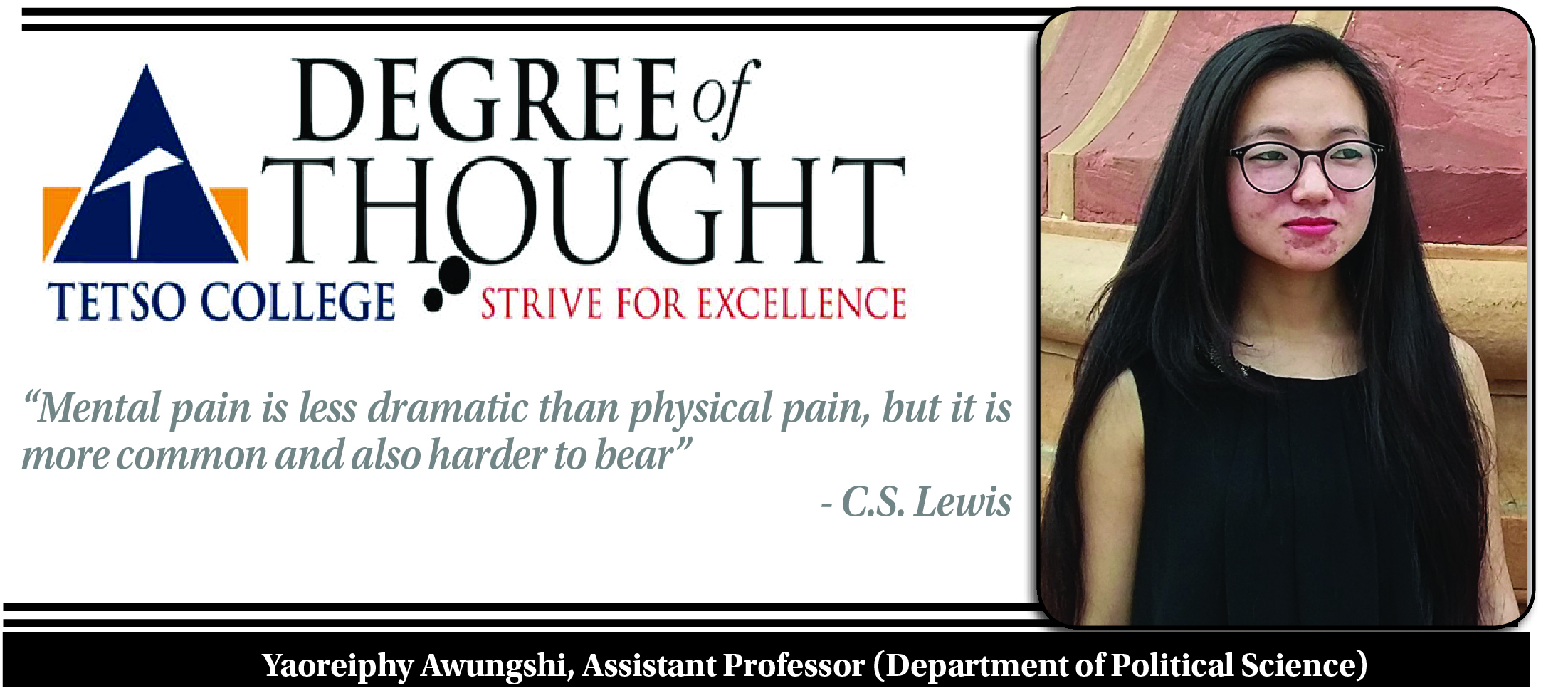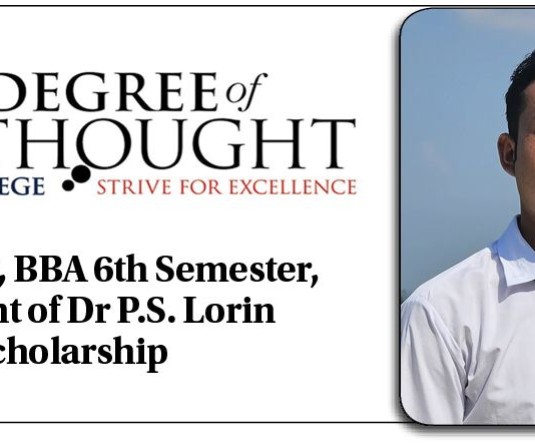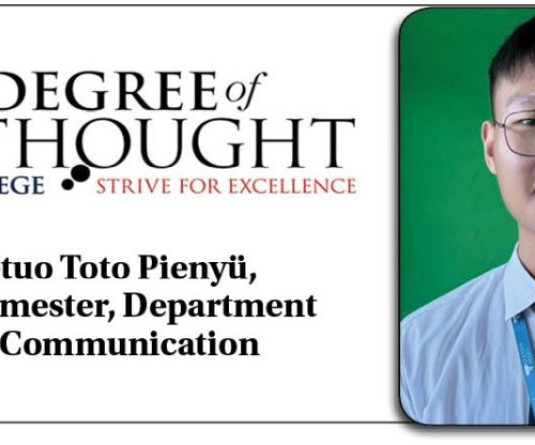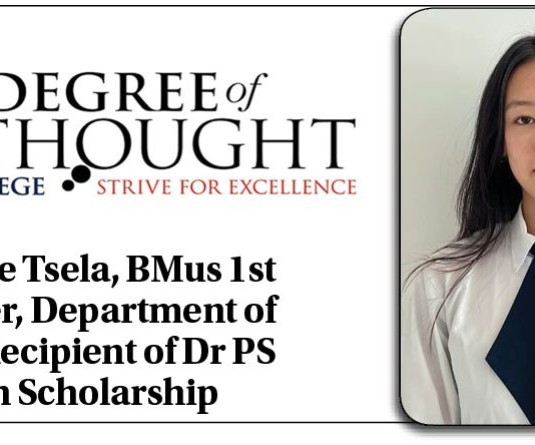1

Yaoreiphy Awungshi, Assistant Professor (Department of Political Science)
Loss of motivation, hopelessness, notions of emptiness, feeling gray, tiredness, restlessness, indecisiveness, being overwhelmed about everything, suicidal, inexpressible sadness, low self- esteem, and so on are some of the signs of depression. However, each individual experiences different kinds of fand states of mind in their depressive episodes. Depression is marked by complex fluctuating feelings which cannot be concretely laid out.
The World Health Organization (WHO) defined depression as a common illness characterized by persistent sadness and a loss of interest in activities that one normally enjoys, and accompanied by an inability to carry out daily activities for at least two weeks. Depending on the severity and the number of symptoms one experiences, depression is categorized in three episodes - mild, moderate and severe. But there are effective treatments for depression. It is estimated that one in every four persons in the world suffer from some kind of mental or neurological disorder; and depression is the single largest contributor to global disability. Approximately, 300 million people of the world suffer from depression, i.e., 4.3 percent of the world’s population. In its severe episode, depression leads to death (suicide), and the second largest cause of death in the world is suicide.
Our country is the most depressed country in the world according to the National Care of Medical Health, a study report conducted under WHO (India Today, Oct. 2018). It was also reported that 6.5 per cent of the Indian population suffers from some form or other serious mental disorders. The alarming finding is that,there are not enough mental health workers like psychologists, psychiatrists, or doctors in India. A 2014 report revealed that it was as low as “one in 100,000.”
Mental illness, like any other illness needs to be attended and treated like any other physical illness. In fact, depression like any cancerous disease is frequently not detected at its onset. Most of the time, people do not even have the knowledge that they are depressed. It is because, the symptoms of depression is also the motions of feelings a person goes through in their day to day life. Majority of the people also failed to acknowledge and regard depression as a health issue that needs to be addressed. It is because of the lack of awareness, ignorance and the strong social stigma attached with it.
Mental illness or disorder is regarded in most societies as being mad, unreasonably crazy or some retards with no cure. And people with mental illness and depression are afraid to come up, and openly talk about their illness or seek help because of the strong social stigma attached to it. There is an urgent need to educate ourselves and others about this health issue, because it has become one of the most dreadful diseases of the society and the world at large today.
The world today is about connectivity through technologies and it is also about opportunities and information. People are in constant competition; challenging themselves and competing with others in the world of opportunities in a rat race. We always wanted the best of everything, and anything less than the best is ‘unsatisfactory’. Young people, especially the young adults (18-35 years) are most likely to be affected in this world of competition and opportunities. Any failure or a small failure in their race of competition in life might result to extreme feelings of guilt and breakdown and lead to depression. They might stay as a recluse from friends and family, or society at large, and punish themselves for not ‘being able to give their best.’
Today we see a majority of the young adults, frequently using phones or internet; yet we notice that they are alone with their phones or laptops. The young adults are mostly disconnected, isolated and at times they grow to be so comfortable in their isolation. In this, we fail to notice the state of mind of the person and the effects of isolation on health. The Economic Times 2018, published that ‘loneliness is a serious public-health problem’, and young people are increasingly disconnected (Cares Family, a charity dedicated to curbing loneliness). “The lonely are not only sadder; they are unhealthier and die younger.” Some of the developed countries such as Britain for instance have appointed a Minister of Loneliness. Loneliness is an epidemic, having its impact on health causing obesity and to various habits such as smoking. (Vivek Murthy, a former surgeon general of the US).
We cannot deny the epidemic spread of depression in our society today. North-East States at large are mostly comprised of the active social community, yet the suicides rates are increasing and addiction to alcohol or drugs and other ‘social evils’ are rampant. We need to have a closer look on such issues, and empathize with those struggling with their addiction, seclusion and loneliness. There is an urgent need to bring awareness of this disease in the society, educational institutions and so on. The perception of mental illness needs to be enlightened. We need to bring in awareness about depression in our daily conversations and talk about it, like we talk about any other physical disease.
Let us know, and let others know too that depression as a mental illness is curable through medication, love, attention, empathy and support from the family, friends, loved ones and society at large. Depression, if not attended can lead to death, like any disease. Those who suffer from depression should not be afraid to acknowledge their sickness, and reach out for help. If we notice anyone with any symptoms of depression, let us not hesitate to attend to them, and help them heal.
Degree of Thought is a weekly community column initiated by Tetso College in partnership with The Morung Express. Degree of Thought will delve into the social, cultural, political and educational issues around us. The views expressed here do not reflect the opinion of the institution. Tetso College is a NAAC Accredited UGC recognised Commerce and Arts College. The editors are Dr Hewasa Lorin, Dr. Aniruddha Babar, Dr. Pfokrelo Kapesa, Webei Tsühah, Meren and Kvulo Lorin. For feedback or comments please email: dot@tetsocollege.org.






